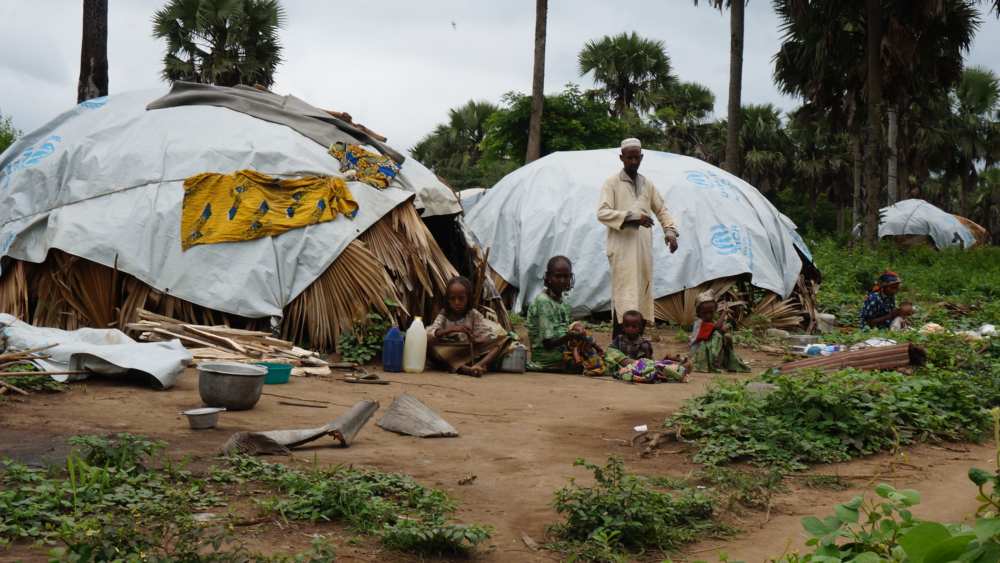Sophia Nnadi is a first-year law student at American University Washington College of Law (WCL) and a member of the WCL IRAP chapter’s policy team. The views expressed here are entirely her own.
My parents, both Nigerian immigrants, indoctrinated me with the values of community-support, humanity, and brotherhood from an early age. Despite the division amongst ethnicities and cultural groups in my densely African community, I was taught to consider the well-being of others through cooperation, goodwill, and support. For this reason, when I entered law school, I decided to join my school’s IRAP chapter because it epitomizes the values I was engrained with since I was young. Unfortunately, recurring events within the region of my family’s home country have me contemplating about whether such values are still alive.
Cameroon, a neighboring country of Nigeria, has historically been a hospitable country, welcoming and aiding refugees fleeing kidnappings, persecution, and armed conflicts in countries like Rwanda, the Republic of the Congo, the Democratic Republic of the Congo (DRC), Chad, and the Central African Republic (CAR). Most recently, however, the large influx of refugees — particularly refugees fleeing the chronic terrorist attacks from Boko Haram in Northern Nigeria — have led Cameroon to close its doors.
In June 2017, Human Rights Watch (HRW) issued a special report stating that since early 2015, the Cameroonian authorities have illegally deported at least 100,000 Nigerians, living in remote border areas, back to Borno State, Nigeria, despite ongoing violence and destitution caused by Boko Haram. HRW reports that the expulsions amounted to the largest number of illegal deportations they had seen in recent years.
Although Cameroon’s actions obviously demonstrate a blatant disregard for international human rights law, how do their actions differ from other countries around the world? Across the globe, nations are turning their backs on the most vulnerable populations. The United States itself issued a travel ban against refugees seeking resettlement for reasons of “national security”. It is no surprise then that such rhetoric has manifested itself in the actions of a small, socioeconomically unstable country, such as Cameroon.
For over a decade, Boko Haram militants have caused violence and death within the northern region of Nigeria, and their human rights abuses have spread to countries like CAR and Cameroon. In 2015, Cameroon’s army began aggressively screening Nigerian refugees at the border because of the national security threat presented by Boko Haram. Amnesty International reports that during the screening process, refugees are subject to arrests, incommunicado detention, enforced disappearances, torture, and deaths in custody. Refugees within the settlement camps in Minawao endure violence at the hands of Cameroonian soldiers, a shortage of food, water, and medical care, and abusive restrictions on their right to free movement. Asylum seekers living outside the camp are repeatedly obstructed from entering the camps by authorities. Many of those without the legal recognition of refugee status are either left in unfamiliar towns and villages to fend for themselves or deported.
Despite reports and interviews conducted by HRW that prove such atrocities are taking place, Cameroonian authorities continue to deny the allegations. Cameroon and Nigeria mutually signed a tripartite treaty with the UNHCR to ensure that all refugee returns are voluntary, but Cameroon’s violations have continued. Consequently, Nigeria has started to follow in Cameroon’s own deportation practices. On January 26, 2018, Nigerian authorities forcibly returned about 47 Cameroonian refugees back into the custody of Cameroon authority; thus, like Cameroon, Nigeria has violated the international nonrefoulement law. If Cameroon’s actions continue, they will certainly result in a domino effect which will only hurt the most vulnerable population seeking protection.
Despite this recent crisis, I refuse to believe that the values of humanity, social responsibility, and community are dead; instead, it is going to take a regional and international effort to revitalize them. Developed nations, such as the US, must lead as an example in this effort. Xenophobic, racist, and supremacist rhetoric disguised in phrases of “national security” need to be deconstructed into rhetoric of inclusion, good will, and protection. While UNHCR foresees that protecting refugees in Cameroon will be increasingly difficult, due to the lack of funding, it is going to take a combination of national and international support to fund relief efforts for camps and refugees trying to assimilate into the society. Additionally, leading nations will have to play a greater role in assuming responsibility and allowing these refugees to seek safety within their borders.
UNHCR and HRW have done their part by monitoring, researching, and publicizing their findings of Cameroon’s violations against international human rights law. If such measures are not taken, the protection space for refugees in Cameroon and around the world will continue to shrink.




Comments are closed.